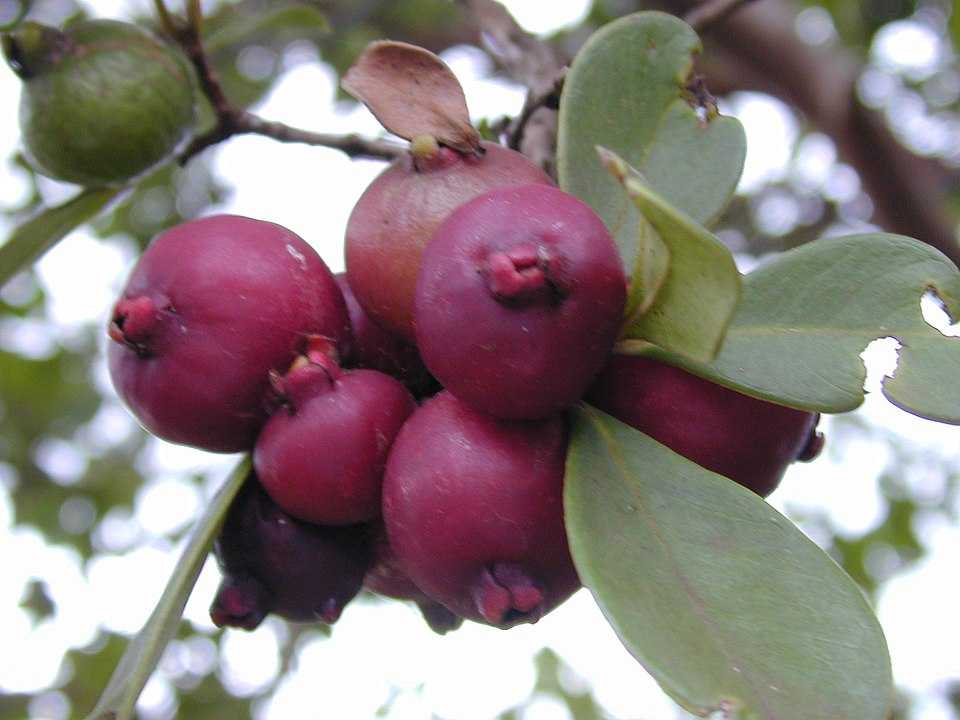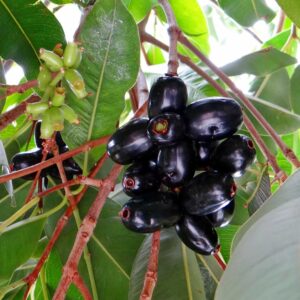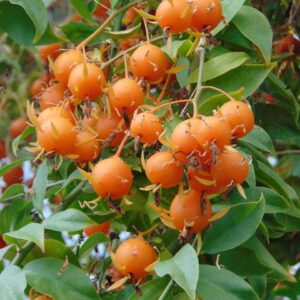Introduction
Black guava, also known by its scientific name Psidium cattleianum, is a tropical fruit tree that is native to Mexico, Central America, and South America.
It is a member of the Myrtaceae family, which includes other well-known fruits such as guava, jaboticaba, and feijoa.
Black Guava plant is a stunning addition to any garden. Its unique appearance and delicious fruit make it a popular choice among gardeners.
Click on the headings to read more!
Appearance
The Black Guava plant is a medium-sized tree that can grow up to 20 feet in height. The tree has a broad, dense crown, and its bark is smooth and brown.
The leaves of the Black Guava plant are dark green, glossy, and oblong, with a length of 5 to 15 cm. The tree produces fragrant white flowers that bloom throughout the year.
Fruit
The black guava fruit, is a small fruit that typically measures around 2-3 centimeters in diameter. When ripe, the fruit’s skin turns a deep purple or black color and may be slightly wrinkled.
The flesh of the fruit is typically white or pinkish in color, with small seeds distributed throughout. The fruit’s interior may have a slightly grainy texture, and it has a sweet and tangy flavor. The overall appearance of the black guava fruit is similar to that of a small plum or cherry.
Taste and Uses
Black guava has a unique, sweet, and slightly tart flavor that is highly prized in many countries. It can be eaten raw, cooked, or made into juice, jams, and other desserts.
Plant care
Black guava is a relatively easy plant to grow and maintain. Here are some tips:
Location
Black Guava plants thrive in warm, tropical climates with plenty of sunlight. Ideally, the plant should be located in a spot that gets full sun for most of the day.
Soil
Black Guava plants prefer well-draining soil that is rich in nutrients. If your soil is not ideal, consider adding compost or other organic matter to improve its quality.
Water
Black Guava plants require regular watering, especially during dry spells. However, avoid excessive watering, as this might lead to root rot.
Fertilizer
Black Guava plants benefit from regular fertilization with a balanced fertilizer. Apply fertilizer in the spring and summer months to promote healthy growth and fruit production.
Complementary Tropical Plants
To complement the beauty and vibe of the Black Guava plant, consider planting other tropical plants in your garden, such as:
- Dragon Fruit: A climbing cactus with stunning, exotic fruit
- Hibiscus: A shrub with large, colorful flowers
- Bougainvillea: A vine with bright, showy flowers
- Yellow Lantana: A shrub with clusters of yellow flowers



